Fall 2020 Pulse of Public Health
For more than 50 years, the UIC School of Public Health has been the only accredited school of public health in the state of Illinois. What will public health and SPH look like 50 years from now?
Alumni Responses Heading link
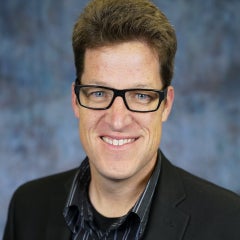
Given some key prevailing trends in our field – which likely will continue and intensify, I believe that, in the coming decades, we must, more than ever before, (1) be adept at working with big data; (2) avail ourselves of new technologies and new ways of doing business; and (3) work to create – and document in the evidence base for practice – meaningful change that greatly benefits those whom we serve. The good news is that UICSPH is at the forefront of training up public health leaders who can do just that – and can do it successfully!
| Research Scientist Supervisor I, Epidemiology, Surveillance and Federal Reporting Branch, Maternal, Child and Adolescent Health Division, California Department of Public Health
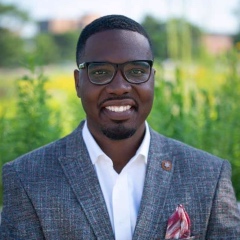
Over the past 50 years, the public health profession and UIC’s School of Public Health have made significant impacts in marginalized communities nationwide through combining research with community driven projects aimed to identify and address the social determinants of health. As we move into the next 50 years, it is imperative that we become synchronized with the corporate community to enhance innovative marketing, public health financial strategies, and robust community health partnerships with local business to strategically continue our progressive commitment to addressing the social determinants of health.
| Sergeant, University of Illinois Chicago Police Department
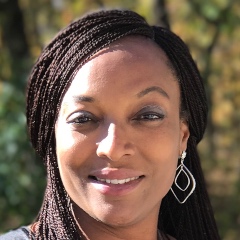
With technology brings improved access to health data in real time, better health forecasting, assisting public health to more accurately estimate appropriate mitigation strategies, focusing limited resources to more targeted programs. This is where the UIC School of Public Health plays a unique role with leadership and community partnership experience, utilizing appropriate resources to better assess public health needs, assure a competent workforce and a healthier and more equitable community.
| Director, Division of Health Protection, Kane County Health Department
In 50 years from now, many positive changes that impact health outcomes will occur. More women and people of color will hold positions of power in government and business. All United States citizens will have health insurance. However, new challenges will arise. New diseases will develop, the earth may continue to warm, and the systems of oppression will change forms. As our world evolves, public health as a field and the UIC school of public health will continue to rise to the challenge.
| Program Manager, American Academy of Pediatrics
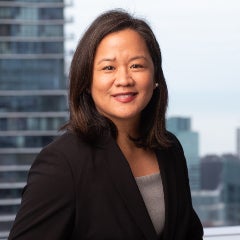
In 50 years, public health intertwined with health equity will finally be at the forefront of people’s minds. In our experience addressing COVID-19, the pandemic has exposed the gaps in a fair and equitable health care system, and I predict the future will hold key advances in structural and systemic change that resolve barriers to good health. In the way of COVID-19, this includes cohesive testing, tracking, isolation and preventive health care education.
| Executive Director, Corporate and Civic Partnerships, Health Care Service Corporation
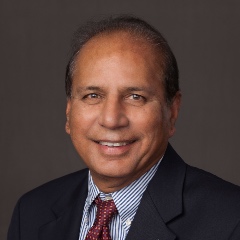
Fifty years from now, public health will be well funded and further integrated into our nation’s infrastructure. This would result in greater accessibility to healthcare through advancements in our everyday technologies and widespread use of data. As medical homes continue to grow, public health will be the foundation to preventive services and achieving more equitable health outcomes as we work towards bridging gaps in disparities. I hope schools of public health, through its diverse faculty will provide more focus on health.
| Vice President of Clinical Services and Workforce Development, Illinois Primary Health Care Association